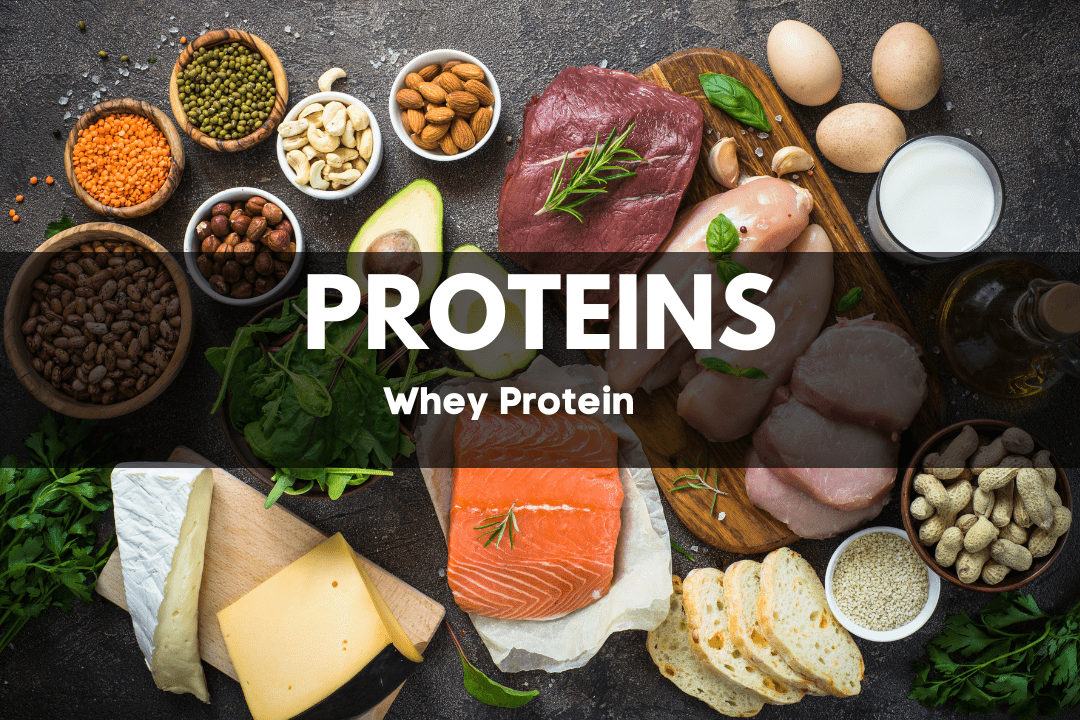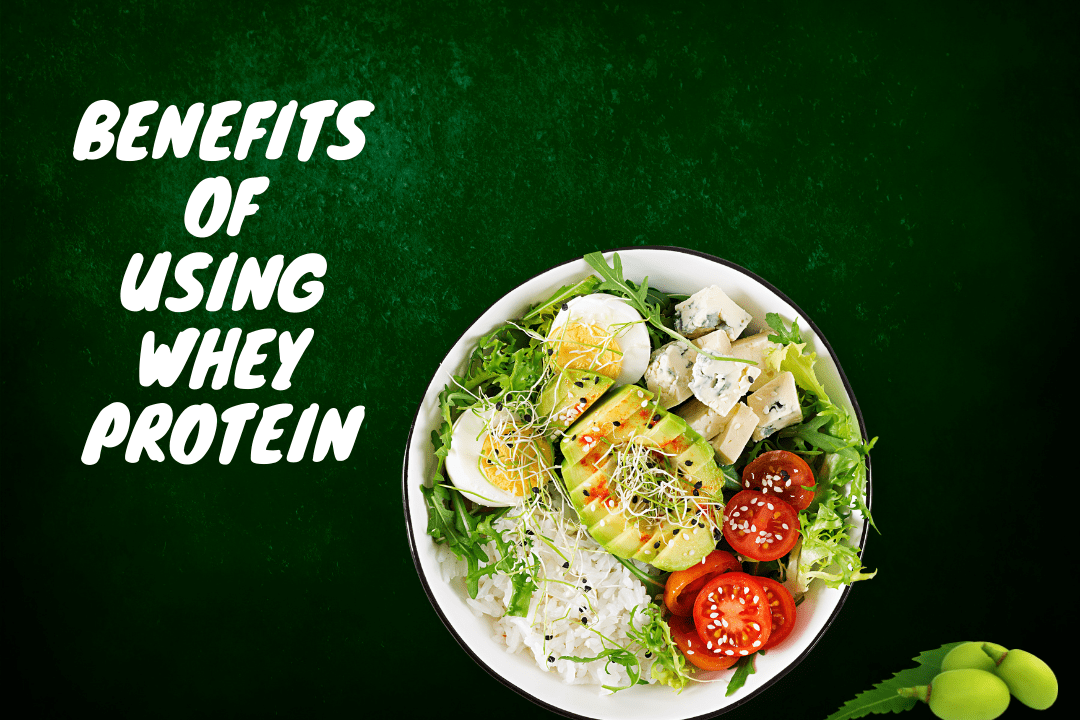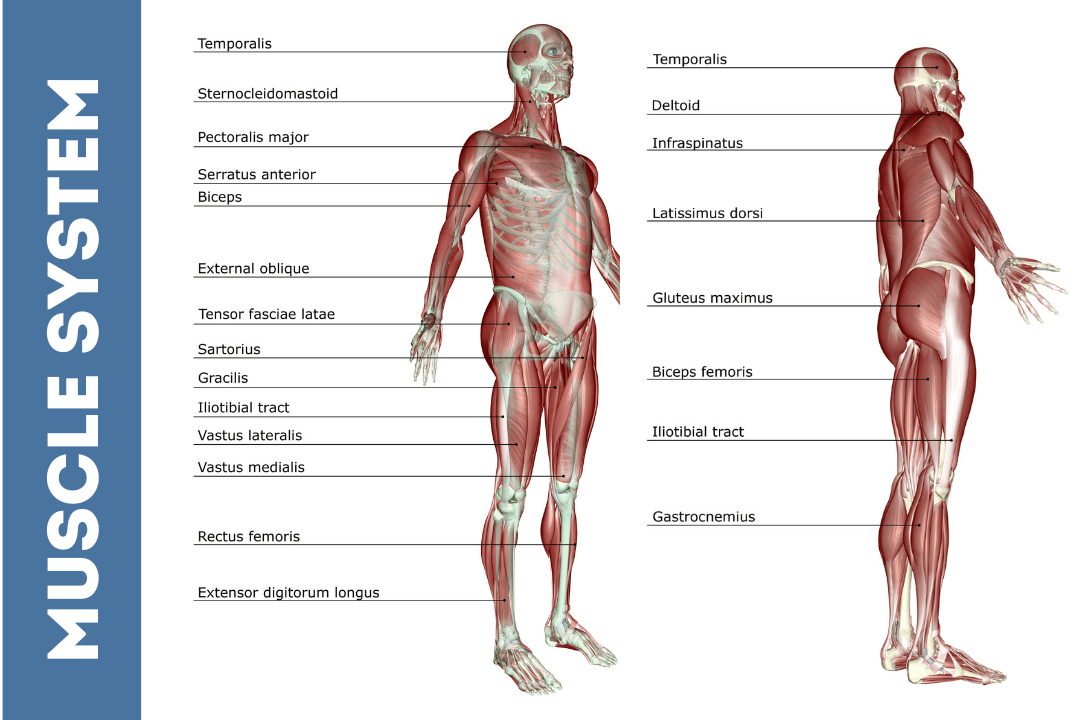Whey Protein: The Best Protein for Muscle Growth
Introduction
The growth of muscles demands consistency and a long term commitment to the process however, with sufficient utilization of certain proteins it can be possible. Protein is the top nutrient for building muscles.
The protein found in whey, the runny part of milk that separates from the curds during the cheese-making process, is known as whey protein. It is regarded as the best protein for muscle growth. It is often taken as supplement to increase muscle growth. Whey protein enhances the diet’s nutritional value and impacts the immune system.
Whey is the liquid that is produced during the cheese making process when milk coagulates. Sweet whey which has a minimum pH of 5.6, comes from the manufacturing of cheeses like Cheddar that are coagulated with rennet.
Due to its lactose, protein and mineral content as well as the beneficial qualities it adds to food, whey is becoming more and more sought after product.
Types of Whey Protein:

Whey protein isolate, whey protein hydrolysate, and whey protein concentrate (WPC) are the three main forms of whey protein supplements.
Whey Protein Concentrate:
Of the three whey protein powders, Whey Protein Concentrate (WPC) is the most economical; its protein concentration ranges from roughly 58% to 89%. It also has fat, lactose, and immune-boosting peptides as extra ingredients. It is appropriate for people who are just starting out with exercise, those who want to increase muscle, and those who want to gain weight because the protein content ranges from 50% to 90%.
Whey Protein Isolate:
Whey protein isolate has a protein concentration of roughly 95% and a low lactose and fat content of about 5%. For those who want to exercise but strictly monitor how much fat and carbohydrates they eat, this is the best option.
Whey Protein Hydrolysate:
With a protein concentration of around 99%, whey protein hydrolysate is the priciest of all whey proteins. The molecules are broken down to improve the body’s absorption and digestion through a process known as hydrolysis. Because of its high water solubility and quick absorption, this type of whey protein is advantageous for boosting the immune system, supporting nutrition, and enhancing the quality of life for cancer patients. It is regarded as the best option available for whey protein supplements.
Benefits of using Whey protein

For good reason, whey protein is one of the most researched supplements available. It has been shown in scientific research to have many health benefits and a very high nutritional value.
A high quality protein:
During the process of making cheese, whey separates from milk. We refer to the protein component of whey as whey protein.
All of the essential amino acids are present in this full, premium protein. Furthermore, in comparison to other forms of protein, it is highly digested and leaves your stomach swiftly.
Because of these characteristics, it is among the top dietary sources of protein.
Weight loss aid:
Whey was found to help subjects “lost significantly more body fat and showed a greater preservation of lean muscle compared to subjects consuming the control beverage” in a study involving 158 participants that was published in Nutrition & MetabolismTrusted Source.
Anti-cancer qualities:
Whey protein concentrate has shown encouraging outcomes when used to treat cancer, according to research published in the journal Anticancer ResearchTrusted Source. Further investigation is required.
Strengthening of muscles:
Whey protein has advantages for both external and internal health, including improved skin and hair. Whey protein aids in weight loss, muscle building and repair, and age prevention. Whey protein has a number of benefits that affect one’s physical and overall well-being. It promotes weight control, slows down the aging process, and helps strengthen and repair muscles.
Fulfilling protein requirements:
Protein is an essential food that the body needs for several vital amino acids that are necessary for numerous bodily processes. When dietary consumption is insufficient, whey protein supplements can help meet daily protein requirements. Whey protein and exercise together have been shown to be a very successful preventive strategy for general health.
Lower blood cholesterol:
Whey protein lowers blood levels of low-density lipoprotein (LDL-C), commonly referred to as “bad” cholesterol. Reducing LDL-C is a step in the right direction toward heart disease risk reduction.
Lessens hunger:
Whey protein has the ability to extend feelings of fullness, which makes it very helpful for people trying to lose weight and choosing low-calorie foods.
Lowers the level of inflammation in the body: Long-term inflammation is linked to a number of illnesses that negatively impact general health and well-being. A body that is inflamed is indicated by elevated blood levels of C-reactive protein. Research has indicated that whey protein may have anti-inflammatory properties since it has been shown to lower blood C-reactive protein at large dosages.
Improves the body’s natural defenses against free radicals:
One of the main antioxidants in the body, glutathione, is produced in part by whey protein. By reducing the risk of several chronic diseases and enhancing the body’s natural antioxidant defenses, glutathione functions as an antioxidant.
Functionality:

Because of its functionality and nutritional worth, whey protein is employed in a wide variety of food applications. Whey protein has a high capacity for foaming, which means it can produce and maintain air bubbles in a liquid (Renner and Abd El- Salam 1991). Also, whey protein is soluble at pH values between 2 and 10. Additionally a brief overview of Whey Protein Utilization 9 creates interfacial layers between food components that are hydrophilic and hydrophobic, stabilizing emulsions.
Whey protein products are often selected as surface-active agents for stabilizing food foams and emulsions, such as ice creams, soufflés, frothed drinks, and other similar items (Foegeding et al. 2002). As emulsions, processed cheeses are enhanced in their melting, slicing, and spreading properties by the addition of whey protein (Foreign Agricultural Service 2003).
Acid whey powder gives bread, biscuits, crackers, and snack items a golden surface during baking while also enhancing the flavor and color of the crust (Kosikowski 1979). Depending on pH, ionic strength, and temperature, whey proteins can bind enormous amounts of water by unfolding and aggregating (Hudson et al. 2000).
For example, WPI increases moisture retention when added to muscle protein (McCord et al. 1998). WPC has been used to replace fat in low-fat dairy products and to boost the amount of protein and solids in milk and cheese.
A three-dimensional network can be formed through protein gelation, which is described as a balance of protein-water and protein-protein interactions (Renner and Abd El-Salam 1991). The primary whey protein, B-LG, exhibits favorable thermally induced gelation capabilities since it does not heat-denature until around 78°C (Paulsson and Dejmek 1990). B-LG is a perfect active component for fortified acidic beverages since it is highly soluble at low pH levels.
Whey Supplementation’s Impact on Strength and Muscle Mass
Whey protein supplements are most commonly used to gain more muscle build and strength.
Athletes, bodybuilders, fitness models, and anyone wishing to do better in the gym are big fans of whey protein.
Whey protein helps to build muscle and strength in the following ways:
Building blocks:
It offers amino acids and protein, which act as the building blocks for faster muscular growth.
Hormones:
It causes anabolic hormones like insulin, which might promote muscle growth, to be released more frequently.
Leucine:
It has a high concentration of this amino acid, which is known to promote the molecular and genetic synthesis of muscle proteins.
Quick absorption:
Compared to other protein sources, whey protein is absorbed and used very quickly.
Read More Information
FAqs
What are the most effective ways to use protein to build muscle?
To build muscles effectively, mix the smooth protein powder with cold water or your favorite drink. This special powder promotes muscle recovery and growth, targeting gains and strength. The ProHydrolase enzyme blend in it helps break down the right amount of whey protein for better absorption.
What is the best lean protein powder for muscle gain?
For effective muscle gain, we recommend Kaged Whey Protein Isolate as the best protein powder for men. It’s straightforward and top-notch. The whey protein isolate is specially filtered to make it easy to digest and absorb.
What is the most complete plant protein powder?
When we say a protein is “complete,” it means it contains all nine essential amino acids our bodies can’t produce on their own. Typically, animal proteins have this completeness. In the plant world, soy stands out as a complete protein.
